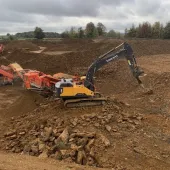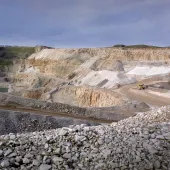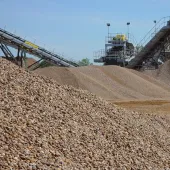Struggle to replenish quarry reserves continues

Latest analysis by BDS Marketing reveals only five months of production were replenished last year
THE UK aggregates industry continues to be unable to replenish its production with new reserves. In 2014, less than half of the aggregates extracted were replaced with consents for new reserves. This is one of BDS Marketing’s conclusions from their analysis of planning applications and consents in the aggregates industry.
Commenting on their findings, BDS director Julian Clapp said: ‘Only five months’ of production were replenished last year. The situation was slightly better in sand and gravel. However, in crushed rock, just three months’ production was replenished during 2014.’
Only in the South East did aggregates companies manage to fully replenish the amount of sand and gravel extracted during the year. In many other areas, such as Wales, the West Midlands and northern England, few consents were granted.
According to BDS, the vast majority of quarries – more than 95% – will have seen reserves lower at the end of 2014 than at the start of the year, and the consultancy says the situation does not look likely to improve in the short term.
BDS picked up three major planning applications (in excess of 10 million tonnes) submitted during 2014 which remain outstanding. Elsewhere, however, the level of new applications for additional reserves remains low.
Over the previous 25 years, BDS believes that only in 2006 has the quarrying industry more than replenished the reserves taken out during the year. In one other year, new consents granted were similar to production, but in all other years the consultancy estimates that consented reserves failed to match production.
However, the success rate of planning applications is good. During 2014, just 20% of applications were refused or withdrawn. ‘The situation is helped by a large proportion of applications – around 40% – being for extensions of time to work already consented reserves,’ said Mr Clapp. ‘There is a greater likelihood of these applications being consented and this is a reflection of the last recession when outputs fell below expected levels.’









